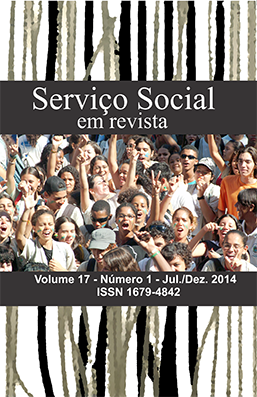Co-financing of Social Policy in the Brazilian Federalism Context of XXI Century
DOI:
https://doi.org/10.5433/1679-4842.2014v17n1p178Keywords:
Co-financing, Federalism, Social PoliciesAbstract
The federal arrangement post Constitution comes indicating greater accountability of federal units and municipalities in the implementation of social policies at the same time as it gave greater autonomy in tax collection. From the 2000s, the new rules of social policies in education, health and social assitance has required a greater effort of budgetary resources of the states, the Federal District and municipalities, without the creation or injection of additional tax revenue. In social policies, important legislative changes mark the first decade of this century in Brazil with direct implications on federal arrangement and therefore the co-financing of social policies. The main objective of this article is to analyze the amount of funds invested by the federal government, states, Federal District and municipalities in budget functions: social assistance, health and education, from 2002 to 2012, highlighting the co-financing these social policies. As well as to identify some obstacles created by the fiscal adjustment underway in the country to expand the co-financing of social policies.
Downloads
Downloads
Published
How to Cite
Issue
Section
License
Copyright (c) 2025 Evilasio Salvador

This work is licensed under a Creative Commons Attribution-NonCommercial-NoDerivatives 4.0 International License.
A revista se reserva o direito de efetuar, nos originais, alterações de ordem normativa, ortográfica e gramatical, com vistas a manter o padrão culto da língua e a credibilidade do veículo. Respeitará, no entanto, o estilo de escrever dos autores. Alterações, correções ou sugestões de ordem conceitual serão encaminhadas aos autores, quando necessário. Nesses casos, os artigos, depois de adequados, deverão ser submetidos a nova apreciação. As provas finais não serão encaminhadas aos autores. Os trabalhos publicados passam a ser propriedade da revista Serviço Social em Revista, ficando sua reimpressão total ou parcial sujeita a autorização expressa da revista. Em todas as citações posteriores, deverá ser consignada a fonte original de publicação, no caso a Serviço Social em Revista. As opiniões emitidas pelos autores dos artigos são de sua exclusiva responsabilidade.














